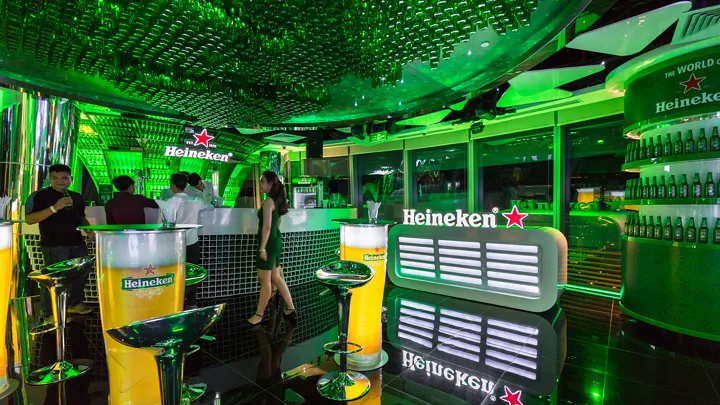Heineken “suspends” Vietnam brewery amid falling beer sales
Heineken has decided to “temporarily suspend” one of its breweries in Vietnam against a backdrop of declining beer sales in the country.
The site, located in Quang Nam in central Vietnam, is one of six Heineken has in Vietnam. According to the Dutch giant, the brewery has the smallest capacity of its factories in the country.
“To remain adaptive and agile in response to and in anticipation of changing market dynamics, we have decided to optimise our brewing and business activities,” Heineken said in a statement sent to Just Drinks.
“We are seeking efficiency and economies of scale to streamline our operations, to enable us to continue investing and unlocking growth in Vietnam market to continue supporting our overall workforce and sustain our business operations and our value chain.”
The brewer said “some” of the affected workers will be relocated to other sites “where feasible”.
Heineken, which first began brewing in Vietnam in 1991, pointed to an “economic slowdown” in the country, which has hit demand for beer.
The Amstel brand owner also said the recent strict enforcement of Decree 100 – a law that imposes stiff penalties on drink-driving – has seen consumers “forming new habits and changing their relationship with alcoholic drinks”, the company said.
Beer sales in Vietnam fell at a “double-digit” rate in 2023 and the market has endured a “mid-single-digit decline year-to-date in 2024”, Heineken added.
In the first quarter of the year, the group saw its underlying revenue in Vietnam rise “in the mid-teens”, it reported in April. The company pointed to “volume growth in the low-teens”, helping by lapping destocking a year earlier.
In 2023 as a whole, Heineken saw its revenue in Vietnam decline “organically in the low twenties, behind the category” amid the destocking and a shift in demand to more mainstream brands.
Earlier this month, it was reported Vietnam’s government is considering raising consumption tax on alcoholic beverages to 100% by 2030. The tax, applied to a range of luxury goods and non-essential items, is currently 65% and affects beer and strong liquor.

